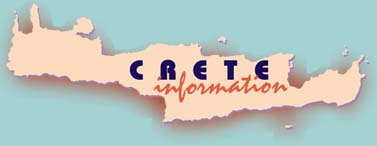Places to visit
Historic View
Hotels
Camping
Map info
Crete Travel Info
uch.gr |

Monasteries & Churches on CRETE Island
Capital of Crete during the Roman and Early Byzantine period, Gortys became
the first Christian
community in Greece in the year 65 A.D., after St. Paul appointed Titus as bishop, with a mission to convert the whole of Crete.
In the 16th century the Cretan School of painting, closely allied with the
Byzantine tradition, produced numerous painters of icons, both famous
and unknown.
Crete is scattered with the ruins of countless frescoed churches dating from
961, when the Byzantine recaptured Crete from the Saracens, to 1204, when the
island fell into the hands of the Venetians.
A presentation of the most important churches and monasteries follows.
IN CHANIA CITY
- The chapel of Agion Anargiron with old Byzantine frescoes.
The Russo-Byzantine church of Agia Magdalini in the Halepa quarter.
IN THE DISTRICT OF CHANIA
- At Akrotiri (A3) northeast of the city (16.5 km.), the Monastery of Agia Triada, with a fine gate and church, built in 1632.
- Near Agia Triada, the Monastery of Gouverneto,
founded in 1548, has a Renaissance style church whose impressive facade is
decorated with Venetian sculptures.
- The Gonia Monastery (or Monastery of Hodigitria), (A2), near the village of Kolimpari (24 km. west of Chania), has a lovely view and
dates since1662.
- At Kato Episkopi (B2), a village about 10 km. south of Kolimbari,
the Rotonda of the Archangel Michael with interesting mosaic floors and important frescoes
by Byzantine artists of the 12th century.
- At the village of Alikianos (B2) (13 km. southwest of Chania),
the Byzantine church of St. George with frescoes dated 1430.
- At the village of Sougia (C2) on the south coast of the District, there are
some exquisite mosaics from an early Christian 6th century basilica preserved
in the village's modern church.
IN THE DISTRICT OF RETHIMNON
- The Monastery of Arkadi (Moni Arkadi, B5) (23 km. southeast of Rethimnon),
built in the 16th century in a wonderful natural setting. It is linked with
memorable events in the island's struggle against Turkish oppression. There
is a tourist pavilion outside the monastery.
- The Monastery of Preveli (C5) (36 km. south of Rethimnon). A historic monastery
well worth visiting with a small museum and beautiful view of the Libyan Sea
(Liviko Pelagos).
IN HERAKLION CITY
- The Cathedral of St. Minas and the smaller church of Agios Minas beside it.
- The church of St. Catherine, containing icons by Michael
Damaskinos, the most important representative of the Cretan School.
IN THE DISTRICT OF HERAKLION
- At Skotini about 1 km. northwest of Fodele (B7) the little church of the Presentation of the Virgin Mary (Issodia tis Theotokou) built on the site of an older church of the 11th or 12th century.
- About 56 km. southwest of Heraklion the Monastery of
Vrondissi (C6) with a
fountain carved in the relief (15th century) at the entrance to the garden and a
panoramic view.
- Further southwest, near the village of Vorizia (C6, 52 km. from Heraklion), the
abandoned Monastery of Varsamoneri. Here one can see the church of Agios
Phanourios whose 15th century frescoes are of great artistic and scientific
value, a unique monument of the Cretan School.
- At Gortys (Gortis, D7) the three-apsed basilica (6th century) dedicated to
- Near Krassi, west of Agios Nikolaos, the Monastery of
Kardiotissa (C9), with its
church consecrated to the Virgin of Kera.
IN THE DISTRICT OF LASSITHI
- Some 9 km. from Agios Nikolaos before the village of Kritsa, the church of Our
Lady of Kera (C9), filled with frescoes from the 14th or 15th century and judge
to be the finest in Crete.
- East of Sitia (18 km. ), the Monastery of Toplou or the Panayia (Virgin)
- The Akrotiriani Monastery(C12), dating from the 1th century. The monastery contains an
inscription
from the 2nd century B.C. and a famous 18th century icon by Ioannis Kornaros.
- South of Sitia (41 km.), the Monastery of Kapsa (D11).
Crete Information
|